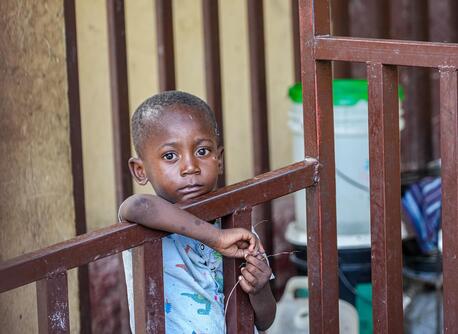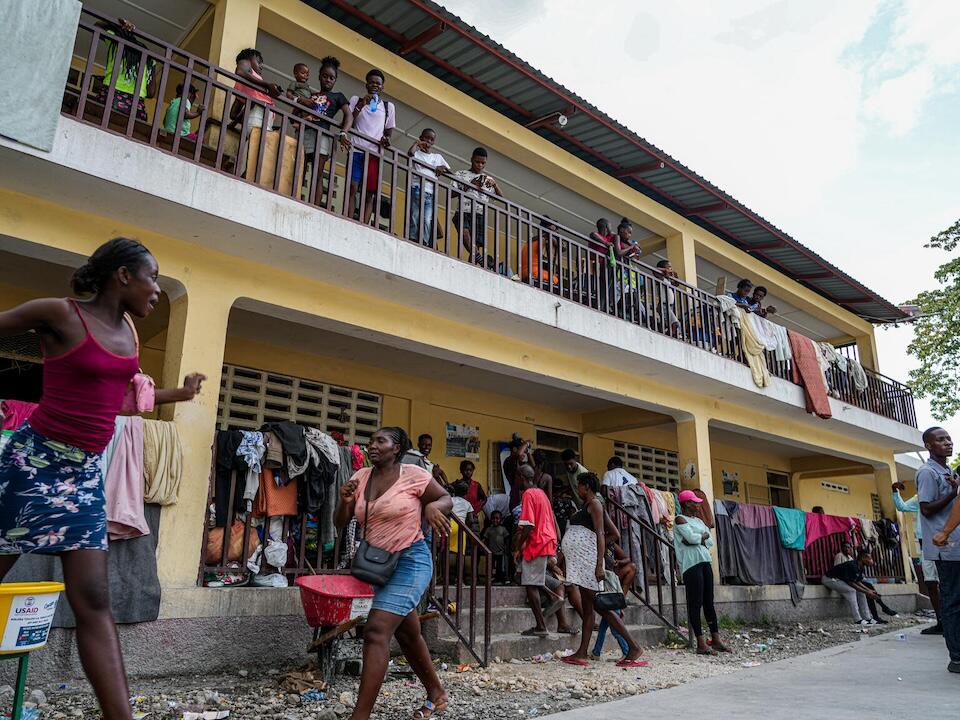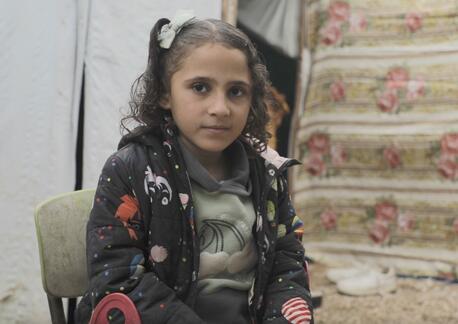
UNICEF Helps Children Displaced by Violence in Haiti
Between March and July 2024, the number of internally displaced children in Haiti increased by an estimated 60 percent — the equivalent of one child every minute. UNICEF is providing urgently needed assistance.
Pervasive violence caused by armed groups has pushed more than 300,000 children out of their homes
UNICEF is working with partners to deliver essential services to children living in temporary sites for the internally displaced as Haiti's humanitarian crisis deepens. The violence has generated loss of income for families who used to be economically independent, crippling their ability to sufficiently feed their kids and provide health care. The majority of displaced families with school age children don’t know if they will return to school.
“Children in Haiti continue to endure an onslaught of multiple dangers, including horrific violence and critical levels of displacement,” said UNICEF Executive Director Catherine Russell. “The humanitarian catastrophe unfolding before our eyes is taking a devastating toll on children. Displaced children are in desperate need of a safe and protective environment, and increased support and funding from the international community.”
UNICEF is supporting health care, nutrition support and protective spaces where kids can go to play, learn, "be a child again and have a way to escape the reality of what's actually happening to them," said UNICEF Haiti Chief of Emergency Taz Doriza Phiri. Watch the video:
UNICEF and partners are working to provide basic services
In Port-au-Prince, Haiti's capital, nearly 40 percent of all inpatient health facilities are out of service. Ongoing violence has disrupted the entire agricultural sector, a key source of income for families. Nearly 5 million Haitians are facing acute hunger — almost half the population — with 1.6 million at risk of starvation. More than 900 schools have remained closed since January.
Stephanie Toussaint and her four children are staying in a makeshift IDP camp. They left their home in Port-au-Prince on Jan. 30. "We didn't take anything other than the children. I don't feel comfortable here. When I'm at home I manage my children better," she said. "My greatest dream at the moment is to return home with my children."
My greatest dream at the moment is to return home with my children. — Stephanie Toussaint, mother of four
Other UNICEF support for children in Haiti includes:
- delivering critical lifesaving supplies
- screening for malnutrition and providing nutrition support
- organizing mobile clinics to deliver primary health care
- registering the internally displaced for multipurpose unconditional cash transfers they can use to buy basic goods
- working with national and local authorities to reach people with critical water and hygiene supplies
- providing psychosocial support to children and families
- raising awareness on child protection and gender-based violence issues
Read the latest UNICEF situation report for more details.

More support is urgently needed
“The needs in Haiti continue to grow, alongside the dangers for children. Everyone has a role to play to change the trajectory, and ensure that children get back to school, that they are safe, and that they have access to basic services. Children should not be paying with their lives and their futures for a crisis created by adults,” said Russell.
As of the end of May, UNICEF's $221.7 million appeal to support ongoing work in Haiti faced an 84 percent funding gap. Your contribution will make a difference. Please donate today.
HOW TO HELP
There are many ways to make a difference
War, famine, poverty, natural disasters — threats to the world's children keep coming. But UNICEF won't stop working to keep children healthy and safe.
UNICEF works in over 190 countries and territories — more places than any other children's organization. UNICEF has the world's largest humanitarian warehouse and, when disaster strikes, can get supplies almost anywhere within 72 hours. Constantly innovating, always advocating for a better world for children, UNICEF works to ensure that every child can grow up healthy, educated, protected and respected.
Would you like to help give all children the opportunity to reach their full potential? There are many ways to get involved.





